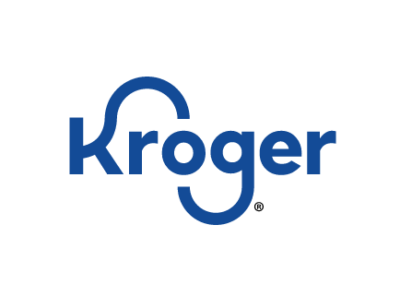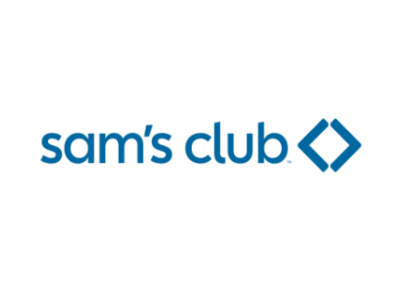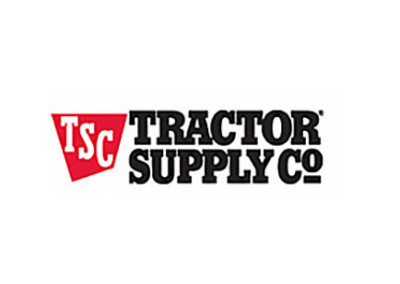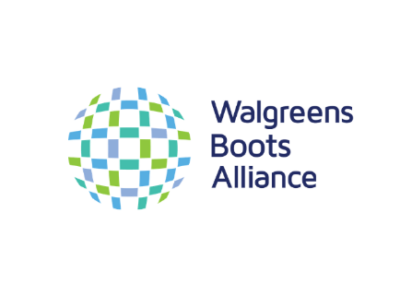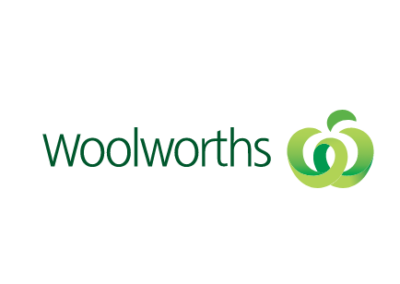MESSAGE FROM THE CEO
As our fiscal year wraps, I am reflecting on the pivotal role of TSC’s network in driving collaboration and fostering change in consumer-packaged goods. It’s evident that through our concerted efforts, this network has been instrumental in shaping industry practices and driving meaningful, measurable progress. One of TSC’s unique strengths is our “big tent,” where industry silos collapse, and novel collaborations emerge. TSC’s focus on three strategic pillars – advancing sustainability science, enhancing supply chain decision-making, and supporting positive impact, along with our network has become central to achieving our updated mission.
TSC’s network is core to our success, adding collaboration to our mission was long overdue
By strategically shifting TSC fully to Arizona State University (ASU), TSC has strengthened its research capabilities, enabling us to drive innovation and amplify our impact. Going forward, we will connect more deeply to our academic roots to provide members new opportunities to benefit from the world-class sustainability science found at ASU, the #1 university for innovation, and our long-term partner, Wageningen University, the #1 university globally for agricultural sciences.
Through our tools and programs like THESIS, we’ve facilitated collaboration between retailers and suppliers, aligning data with sustainability goals and driving tangible improvements across supply chains.
Our expanded THESIS Supplier Support and Trained Service Provider programs have empowered suppliers to navigate sustainability challenges, fostering a culture of continuous improvement and partnership within the supply chain.With the recent acquisition of SupplyShift by Sphera we have an opportunity to explore new features and consulting services to enhance THESIS and drive even greater impact within the industry.
In addition to our focus on supply chain sustainability, TSC’s Sustainability Leadership Institute and Collective Action programs have played a crucial role in mobilizing industry leaders to share challenges and solutions openly. From pioneering research on the challenges of small format packaging waste to connecting growers to markets for more sustainable commodities, TSC’s programs via the power of our network are an impressive driver of change.
Now more than ever, we are focused on our mission to use sustainability science and collaboration.
As we navigate the urgent challenges of climate change, our recent public position statement on the SEC ruling underscores our commitment to decarbonization and the imperative for rapid, large-scale action by brands and retailers. Together with our industry-leading members, TSC supports a paradigm shift towards sustainability, shaping a more resilient and equitable future for consumer-packaged goods. I’m more convinced than ever in TSC’s pivotal role in driving sustainability and fostering change within the consumer-packaged goods industry through our strategic pillars and collaborative network. Together, TSC is shaping a future where sustainability is a fundamental principle driving industry-wide transformation for “all products sustainable.”

Christy Slay
Chief Executive Officer, TSC
About Us
Our Story
For 15 years, TSC has stood for transforming the consumer goods industry. Our journey is one of relentless dedication to fostering a world where people can lead fulfilled lives, all while minimizing their impact on both humanity and the planet.
Comprised of a diverse array of members and partners, ranging from manufacturers and retailers to NGOs and governmental agencies, we convene stakeholders from across the spectrum to collaboratively develop science-based decision tools and solutions. These efforts address the critical sustainability issues that reverberate throughout a product’s supply chain and lifecycle.
Our Vision
In line with our renewed mission TSC envisions a world where all consumers can experience the benefits of products without causing harm to people nor going beyond the limits of our planet.
Our Mission
Use sustainability science and collaboration to deliver more sustainable consumer products. At the heart of TSC’s mission lies the utilization of sustainability science to inform and guide business decisions. Through this approach, we enable the demand signals for sustainable consumer products from retailer to supplier, paving the way for a more equitable future for all.
TSC’s dedication to effecting bold, innovative, and measurable change is woven into the fabric of everything we do. Our core principles serve as guiding lights, shaping our endeavors:
Science-Based
Drawing upon sustainability science, we translate rigorous research into actionable tools for businesses. With over 4,200 peerreviewed studies underpinning our work, our solutions are rooted in robust evidence and expertise.
STAKEHOLDER-INFORMED
Harnessing the power of collaboration, we engage with over 400 decision makers and thought leaders from 200 organizations annually. This expansive network fuels the co-creation and implementation of our tools, supporting science-based decisions across industries and sectors.
FOCUSED ON IMPACT
Driven by our commitment to sustainability, we pursue scalable solutions that strive to make all consumer goods inherently sustainable. Through our collective efforts, we endeavor to reshape the landscape of consumer products, ushering in an era of profound and lasting impact.
TSC TRANSITIONS TO ASU
TSC’s strategic transition to ASU represents a significant opportunity in the pursuit of sustainability and innovation. By integrating TSC into ASU’s expansive research and partner network, we have enhanced the value for our member network to access academic resources and programs across a broad suite of sustainability topics.
ASU’s support for TSC spans various dimensions, including grants, world-class sustainability expertise and research, and access to a wealth of resources and ongoing projects. This transition extends TSC’s reach within ASU’s broad network, amplifying its impact and paving the way for collaborative initiatives aimed at advancing sustainability from regional to global scales. At its core, TSC’s alignment with ASU is a natural fit, given ASU’s steadfast commitment to sustainability, pioneering change and leading by example.
ASU’s dedication to addressing crucial issues through initiatives like circular resource systems, climate positivity, and community success resonates deeply with TSC’s mission. Positioned within ASU’s esteemed Julie Ann Wrigley Global Futures Laboratory, TSC finds itself amidst a dynamic ecosystem primed for further innovation and collective action.
ASU’s track record in sustainability, recognized by the Times Higher Education Impact Rankings as the No. 1 institution in the U.S. and sixth in the world for impacts made by addressing the United Nations Sustainable Development Goals, underscores its ability to translate efforts into tangible results. Together, TSC and ASU drive innovation, poised to address complex global challenges and shape a sustainable future.
SCIENTIFIC LEADERSHIP HIGHLIGHTS
At TSC, we deeply value scientific leadership and engagement in partner organizations. Our staff experts actively serve on coalition councils, publish industry guides and reports, present at conferences, and develop tools and solutions to address sustainability challenges collaboratively. By leveraging staff expertise beyond TSC, we influence industry standards and drive collective action toward shared sustainability goals. Through their contributions, our staff experts play a crucial role in advancing science and driving innovation, ultimately contributing to a more sustainable future for all.
Scope 3
- We created a new Guide for Learning How to Measure Scope 3 GHG Emissions
- Scope 3 Discussion Group for Collective Action launched summer of 2024
- In spring 2024, we hosted a Sustainability Leadership Institute Adaptive Action Lab Web Series: Scope 3
- TSC released a statement in response to the March 2024 SEC ruling on climate disclosures
Packaging and Circularity
- TSC staff contributed to the creation of the US Plastics Pact PCR Toolkit
- TSC staff also served on the US Plastics Pact Advisory Council, Film and Flexibles, Reuse, Environmental Justice, and Reporting Workstreams
- TSC staff were invited to present as experts on small format packaging recyclability at PMMI’s Packaging Recycling Summit, Amazon’s Meeting of the Minds event, and GreenBiz Circularity
Forests
- Our staff experts provided updates to the Forest Declaration Assessment Working Group’s (a comprehensive, civil society-led effort to assess collective progress toward global forest goals) annual report
Food and Agriculture
- Ethical Charter
- TSC collaborated with the benchmarking work of social audits and certifications against the Ethical Charter’s (EC) measurement criteria for implementation on the ECIP Learn, Assess, and Benchmark (LAB) platform.
- TSC led the development, maintenance, and iteration of the ECIP Marketplace. The ECIP Marketplace provides online resources and products from organizations and networks that can assist a grower or supplier in progressing towards, achieving, and maintaining alignment with the Ethical Charter.
- Chancery Lane published US Climate Clauses
- TSC Led the Commercial, Corporate and Financial Services group within the U.S. Transpositions Project and collaborated in the publication of 10 climate clauses for use in contracts under U.S. laws.
- TSC staff presented at the Sustainable Foods Summit in Europe and the Sustainable Forestry Initiative (SFI) Annual Conference TSC is an active member of the Corporate Advisory Council for the Stewardship Index
for Specialty Crops (SISC)- Our staff serve on the Stewardship Index for Specialty Crops Steering Committee, which is responsible for staffing the day-to-day needs of the project.
- Metrics Advisory Committee for Field to Market
- Our staff serve on the Field to Market Standards Committee and Regenerative Agriculture Subgroup.
- Our staff spoke at the Trust in Food Conference in February 2024 about our new joint report that looks at sustainability data collection throughout the pork supply chain.
- Following a two-year benchmarking assessment, Syngenta and TSC have determined that Syngenta’s Outcomes in Agriculture Standard (SOA) is aligned with THESIS in 21 Key Performance Indicators across 38 product categories
THESIS SUPPORT CENTER
Our team and our members have worked to ensure climate, nature and circularity are a focus for THESIS 2024, aligning the data gathered in THESIS to retailer and supplier goals and commitments. In 2023, we had 11 retailers and over 1400 suppliers engage in THESIS to assess, learn, and benchmark all consumer goods products. Watching THESIS scale across retailers is exciting and something we’ve worked for years to achieve.
Timing is everything and we have always been ahead of our time. Over the last year TSC’s Supplier Support program has increased supplier resources to provide the highest level of support for those responding to THESIS. Suppliers not only want to use THESIS to communicate to retailers but also want to utilize THESIS results to inform their understanding of sustainability and their business.
We have also added new Trained Service Providers (TSPs) this year. TSPs bring their deep sustainability knowledge to support suppliers to answer THESIS. Through this program we hope suppliers use their THESIS results and sign up for additional services to help them on their journey.
In 2024, SupplyShift was acquired by Sphera, a globally recognized solutions provider. We are already working together to explore what the future of THESIS with Sphera Supply Chain Sustainability can be including utilizing new features and integrating with their consulting services teams to provide more comprehensive support for decision making.
CIRCULARITY AND LABOR JOIN GHGS AS HOT ISSUES FOR THESIS USERS


We asked THESIS users what their top sustainability priorities were. While we expected Scope 1, 2, and 3 GHG emissions to be top of mind, we found the top focus was on Packaging Circularity (48%), followed by Scope 3 GHG emissions (45%), Scope 1/2 GHG emissions (44%), and Labor Rights (19%).
Next, we asked about companies’ sustainability planning. 62% of suppliers had a sustainability strategy (out of 1268 users). Common approaches in achieving their sustainability strategy included setting goals and targets (82%) and monitoring key metrics (79%).
The most common priority issues covered in supplier sustainability strategies are Waste & Packaging (88%), Worker Health and Safety (84%), Labor Rights (74%), and Climate (72%).
80% of suppliers address social and environmental sustainability issues in their supply chain. When working with their supply base on these issues, most suppliers implement policies (66%) and conduct audits (61%).
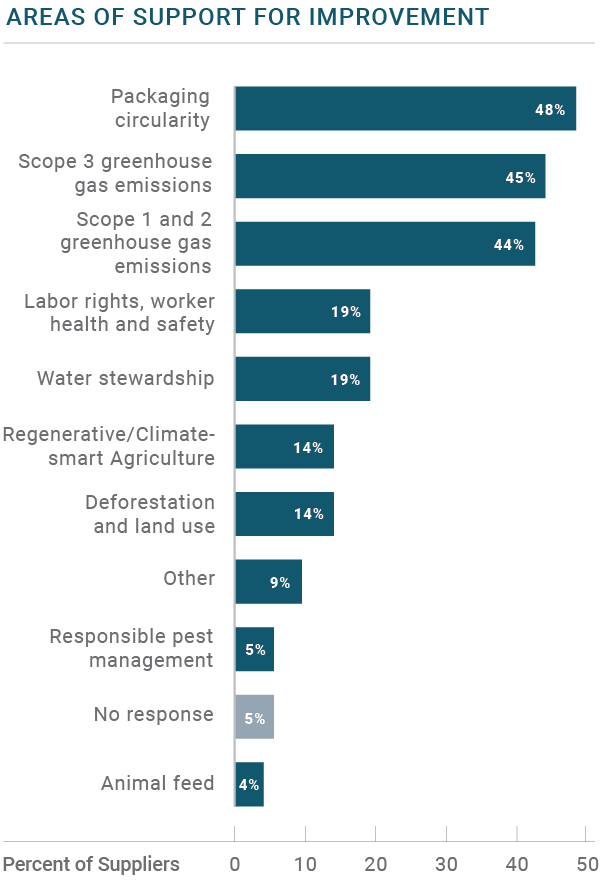

2023 THESIS SCORES CONTINUE UPWARDS TREND
From 2016 to 2023, THESIS assessments of product manufacturers have improved 94%, from 32% to 62% (where 100% equals the maximum score). This is an indication that the systems and processes put in place to respond to THESIS KPIs are creating positive changes in the manufacturer’s practices and supply chain, leading to an overall improvement in scores. Scores improved from 2020 to 2021 at about the same pace they have over all six years.
Across these years, we have observed particularly large increases in many product categories in measurement of greenhouse gases, water use intensity, air quality, worker health and safety, and management systems to manage biodiversity in sourcing.
The number of brand manufacturers using THESIS in 2023 was 1288. Retailers using THESIS included Ahold Delhaize, Costco, Dollar Tree, Family Dollar, Kroger, Sam’s Club, Staples, Tractor Supply Co., Walgreens US, Walgreens Boots Alliance, Walmart, and Woolworths.

THESIS Retailer Growth Accelerates

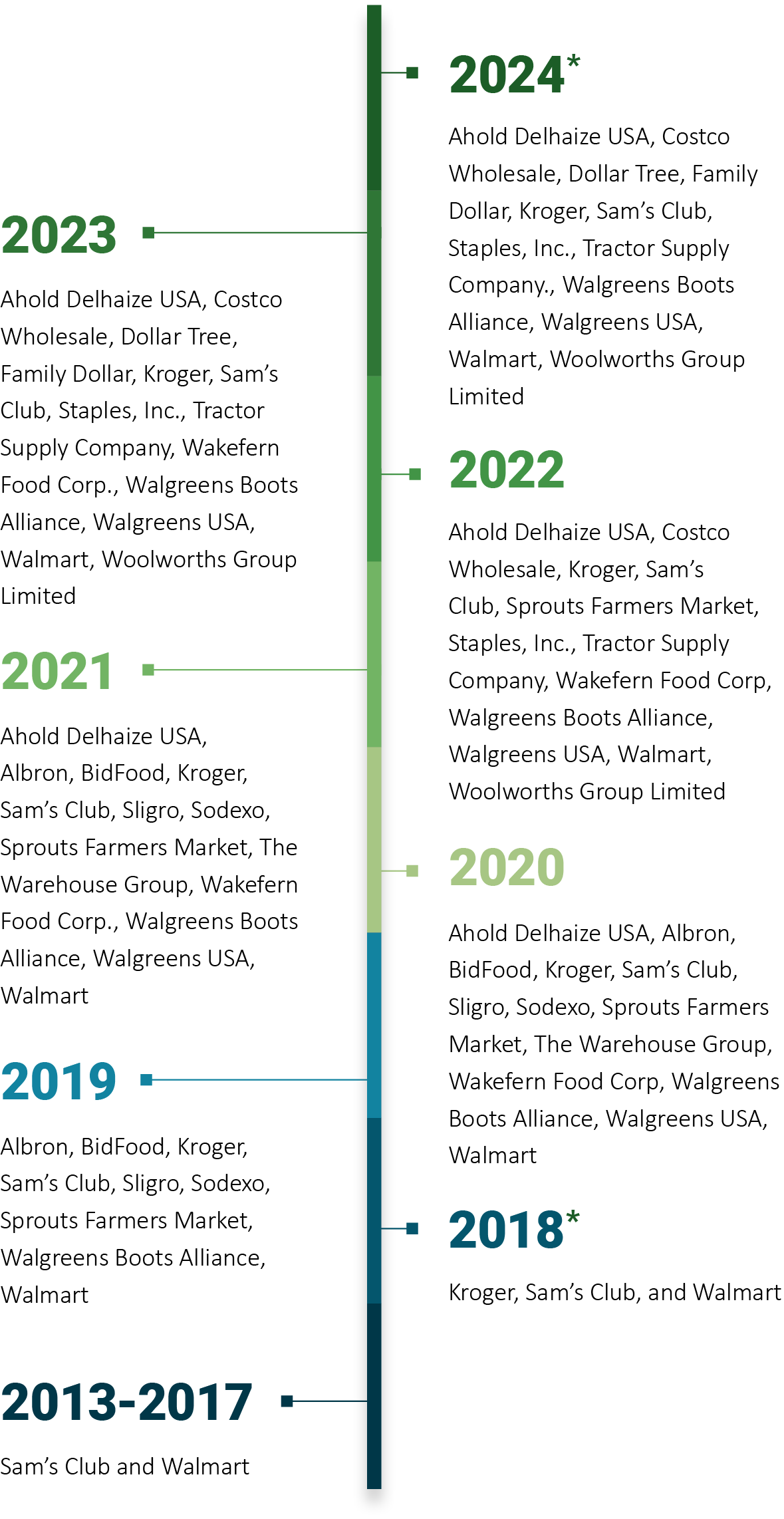
*Largest supplier response years in THESIS history
THESIS Users Adopt Climate Goals
As attention to climate change risks heighten, the tide has turned for companies to set and publicly disclose their climate goals to stakeholders. Last year, over half (51%) of THESIS users have set climate goals. The majority of those who have set goals have set a Scope 1 and 2 absolute reduction goal (60%) or a goal to increase renewable use (53%). The top reason suppliers gave for not setting climate related goal was they are planning to do so in next 2 years (40%). Only 21% of suppliers that had a Scope 1 and 2 target were also SBTI approved, 34% for Scope 3, and 18% for Net Zero.
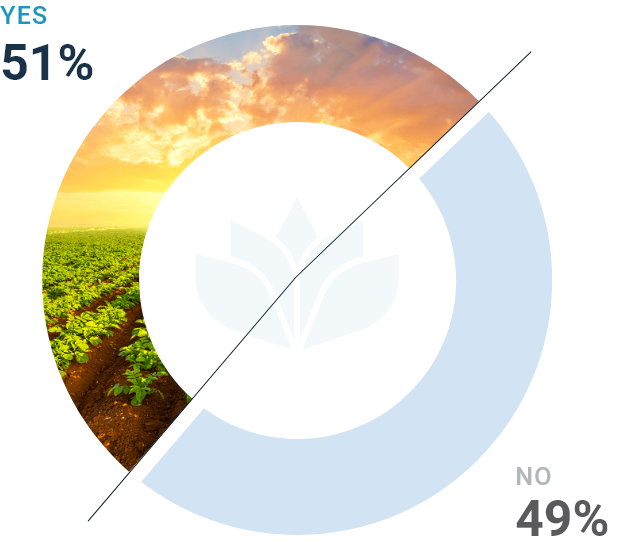
Suppliers Setting Climate Goals (SS)

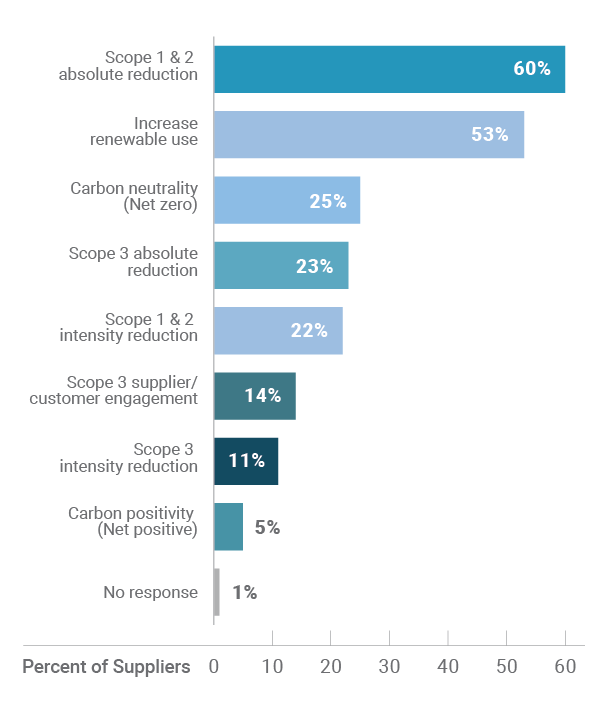
Types of Climate Goals (MS)
Suppliers with Climate Goals: 618
THESIS USERS ANd SCIENCE-BASED CLIMATE TARGETS
As a science-based organization, TSC strongly promotes that companies adopt science-based GHG emissions reduction targets. Goals certified by SBTI are preferable as a third-party certification. 21% if THESIS users have Scope 1 and 2 emissions targets approved by SBTI. A nearly equal amount (19%) used SBT methodology but did not certify, and 14% have applied or are about to.

Scope 1 & 2 Emissions Reduction Target in Accordance with SBTI (SS)
Number of Suppliers with Scope 1 & 2 Targets: 452
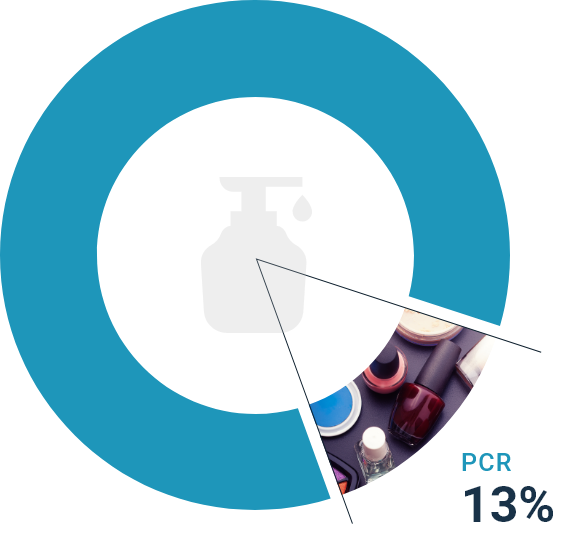
Post-Consumer Recycled Content in Packaging
In the home and personal care sector, suppliers reported that 60% of their packaging was plastic, and that the plastic contained, on average, 13% post-consumer recycled (PCR) content. Activators of the U.S. Plastic Pact have set of goal of having 30% PCR or sustainably-source bio-plastic by 2025
Home and personal care plastic packaging averages 13% post-consumer recycled content
CommodityMap
In May 2024, TSC launched CommodityMap, a cutting-edge cloud-based tool designed to predict environmental and social priorities in agricultural supply chains. Available for free and open to the public, this innovative platform empowers businesses to make informed decisions and take action towards sustainability in their sourcing practices.
CommodityMap cuts through supply chain complexity by utilizing geospatial analytics. In addition to providing users with valuable insights into the sustainability issues associated with their commodity-sourcing regions, the
tool makes complicated sustainability data for their agricultural commodities more accessible. With just the country of import, companies can now perform comprehensive analyses, prioritize efforts, and receive science-based recommendations for action.
CommodityMap was designed to help busy sustainability leaders assess commodity supply chains to enable education and prioritization of key issues across geographies. It is a tool for the beginners or experienced alike.
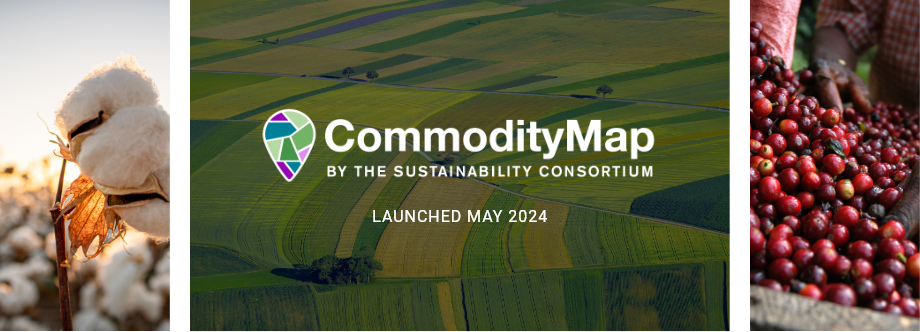

ACCELERATING COLLECTIVE ACTION THROUGH TSC’S NETWORK
The Collective Action Program at TSC embodies our commitment to fostering a pre-competitive environment, bringing together sustainability professionals to collaboratively tackle shared objectives that transcend individual capabilities, thus driving impactful change in the industry. Through this initiative, we leverage collective expertise and resources to address complex sustainability challenges, paving the way for innovative solutions and lasting positive impact.
Collective Action Program
Small Format Packaging
High participant involvement + Generating valuable research and solutions to scale.
Climate-Smart Connected Ag Project
Incentivizing ranchers and growers to implement new practices and technologies
Climate Smart Commodities Partnership
Launching Marketplace this July for direct purchasing of sustainability credentials from farmers
Ethical Charter Implementation Project
TSC collaborated on benchmarking social audits for the ECIP LAB platform and developed the ECIP Marketplace, helping growers and suppliers align with the Ethical Charter.
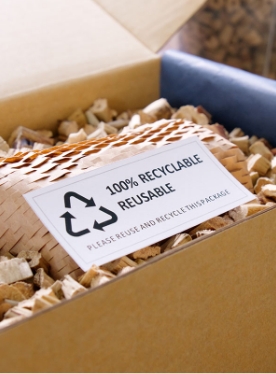
In 2023, only 10 personal care companies out of 611 had met this highest standard


In 2023, only 10 personal care companies out of 611 had met this highest standard

ACHIEVING EXCELLENCE IN PACKAGING STEWARDSHIP
The beauty and personal care assessments within THESIS use TSC’s chemical stewardship list, which defines which chemicals should be used or not used in consumer goods. TSC developed the list in coordination with companies and NGOs several years ago. Ideally, a personal care company will assess its sales packaging for the presence of chemicals on the stewardship list; perform alternatives assessments; demonstrate that the outputs of their alternatives assessments provide informed substitutions of the chemicals on the stewardship list; and publicly disclose annually their progress on these issues.
In 2023, only 10 personal care companies out of 611 had met this highest standard; another 65 companies did everything in the ideal system except publicly disclose. We encourage more companies to examine the chemicals within their packaging in a systematic way.
SHAPING AND WORKING WITH SUSTAINABILITY LEADERS
At TSC, our Sustainability Leadership Institute (SLI) is pivotal in shaping and working with sustainability leaders to drive positive impact. This year, SLI participation has doubled, highlighting the commitment of our members to advancing sustainability.
The institute’s mission is to support the courageous leadership of sustainability-minded professionals. Through engaging with top experts and tackling real-world challenges, SLI participants apply models and methods from Human Systems Dynamics to complex sustainability issues. This approach helps them gain critical insights into pressing topics like Scope 3 GHG emissions and market forces. Our participants gather each fall for an in-person retreat aimed at unplugging from daily work and reflecting on the challenges at hand. In the spring, participants are provided an opportunity to continue their training and receive a certificate for completion of SLI’s Adaptive Action Lab series.
Our vision is a world where business operates in mutual regenerative relationship with humanity and the natural world. By fostering collaboration and action, SLI empowers leaders to pioneer innovative solutions, creating an equitable and just world. Through SLI, TSC is cultivating a community of leaders dedicated to transforming the consumer-packaged goods industry with sustainable practices.
Participation in the Sustainability Leadership Institute is included in TSC membership.
SUSTAINABILITY LEADERSHIP INSTITUTE ADAPTIVE ACTION LABS
This year’s Sustainability Leadership Institute virtual Adaptive Action Labs focused on sensemaking around Scope 3 GHG emissions accounting. The four-part series was designed to help participants navigate the complexity and uncertainty of market and regulatory forces, voluntary commitments, and current measurement and reporting requirements related to Scope 3. Using Human Systems Dynamics tools, participants worked in learning and action groups to deepen their understanding of complex Scope 3 challenges and identify actionable steps forward. Together we questioned assumptions through inquiry, explored what is known, knowable, and unknowable, looked for patterns, and played with competing tensions to find what is true and useful and unlock new options for action on Scope 3.
Another key objective was to facilitate learning and discussion among TSC members including retailers, consumer packaged goods companies, and ingredient providers. Participants shared insights on challenges such as Scope 3 data collection, incentivizing supply chain partners to report, developing internal support for Scope 3 initiatives, and driving consumer behavior change. Attendees, at various stages in their Scope 3 journey, learned from each other’s experiences, exchanging information on everything from technology to policy interpretation.
For TSC, this series was an opportunity to support our members in seeing beyond the regulatory and compliance nature of Scope 3 accounting. These sessions emphasized the fact that uncertainty is inherent in this work and that no one has all the answers in the ever-evolving landscape of Scope 3 emissions accounting. The goal was to inspire action and a mindset of continuous improvement and experimentation, recognizing that making progress, even in small steps, is valuable in driving meaningful change.
WELCOMING NEW BOARD MEMBERS
As we reflect on the accomplishments and milestones of the past year, we are thrilled to announce the addition of five new esteemed members to our board. Their expertise and dedication will strengthen our mission and drive us towards even greater success in the coming years.
We extend our deepest gratitude for TSC’s Board of Directors as a whole and for the commitment, strategic guidance, and efforts in advancing sustainability within the consumer-packaged goods industry. Their leadership has been instrumental in shaping our initiatives, fostering collaboration, and driving positive impact for TSC and in turn,
our mission.
As we look ahead to the future, we are inspired by the collective vision and determination of our board members, whose expertise and passion continue to propel us towards a more sustainable and resilient future.
board of directors

Tanya Ashton
Walgreens Boot Alliance

Roian Atwood
Ahold Delhaize USA

Patrick Beary
Cornell University

Sheila Bonini
World Wildlife Fund (WWF)

Koen Boone
Wageningen University & Research

Challey Comer
The Nature Conservancy

Heidi Gracie
Arizona State University

Ame Igharo
Ulta Beauty

Daryl Sabourin
American Sugar Refining, Inc.

Peter Schlosser
Arizona State University

Ryan Vroegindewey
Campbell Soup Company
Emeritus board

Jon Johnson
University of Arkansas
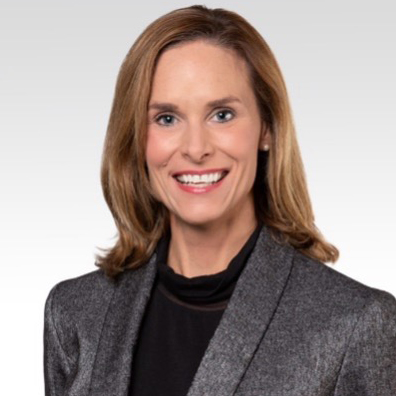
Laura Phillips
MGA Entertainment
HONORING TSC AND THESIS LEADERS
At TSC, we believe in celebrating and recognizing individuals and organizations whose dedication and innovation drive positive change within the consumer goods industry. Each year, we honor those who exemplify leadership, commitment, and excellence in sustainability with a range of prestigious awards. This year’s recipients have gone above and beyond, demonstrating exceptional efforts in advancing sustainability initiatives and fostering positive impact.
Join us in congratulating the following awardees:
Sustainability Visionary Award
Martin Wolf, Seventh Generation, Inc.
SLI Recipient
SYSTEMIC TRANSFORMATION AWARD
Daryl Sabourin, ASR Group
TSC Loyalty Circle Award
Patrick Beary, Cornell University
Marie Johansson, Colgate Palmolive
THESIS Advocate Award
Debora Fillis Ryba, Nice-Pak Products, Inc.
Small Format Recycling Advocate Award
Brian McEnroe, Colgate-Palmolive
TSC Rising Star Award Recipient
Ame Igharo, Ulta Beauty
Jennifer Silberman, Dollar Tree Stores
TSC Community Culture Award
Josh VanDeWalle, Bayer Crop Science
Tanya Ashton, Walgreens Boots Alliance
THESIS Performance Award
Lori Kotkin, Free Country
Best Effort Recipient
Costco Responsible Sourcing Team, Costco
Front-Runner Recipient
TSC Partner of the Year Award
John Jansen, Farmers for Soil Health
Ben West, Farmers for Soil Health
Stephen Hearn, Farmers for Soil Health



TSC SUMMIT – MORE THAN A CONFERENCE
Against the picturesque backdrop of Crystal Bridges Museum of American Art in Bentonville, AR, the 2024 TSC Summit convened a diverse cohort of sustainability professionals from April 30th to May 2nd. Beyond a mere conference, it epitomized a collaborative community where retail giants, household brands, NGOs, academia, tech innovators, and scientists converged.
TSC’s Summit serves as a nexus for sharing insights, forging partnerships, and catalyzing impactful change. Through engaging discussions and immersive experiences, attendees explored innovative solutions to global sustainability challenges. From supply chain resilience to circular economy initiatives, the event emphasized the power of collaboration in driving progress while remaining intentionally small and highly curated.
As we reflect on the 2024 TSC Summit, it’s evident that the spirit of collaboration and creativity that permeated the event will continue to propel sustainability efforts forward, shaping a brighter, more resilient future for generations to come. We often hear from members that it’s TSC’s culture of community and science they appreciate most.
DRIVING POSITIVE IMPACT THROUGH MEMBER ENGAGEMENT
Our focus on member and stakeholder engagement drives our strategic goal of creating positive impact. Through webinars, retreats, and collective action task forces, we facilitate collaboration and change in supply chain sustainability across all consumer goods sectors.
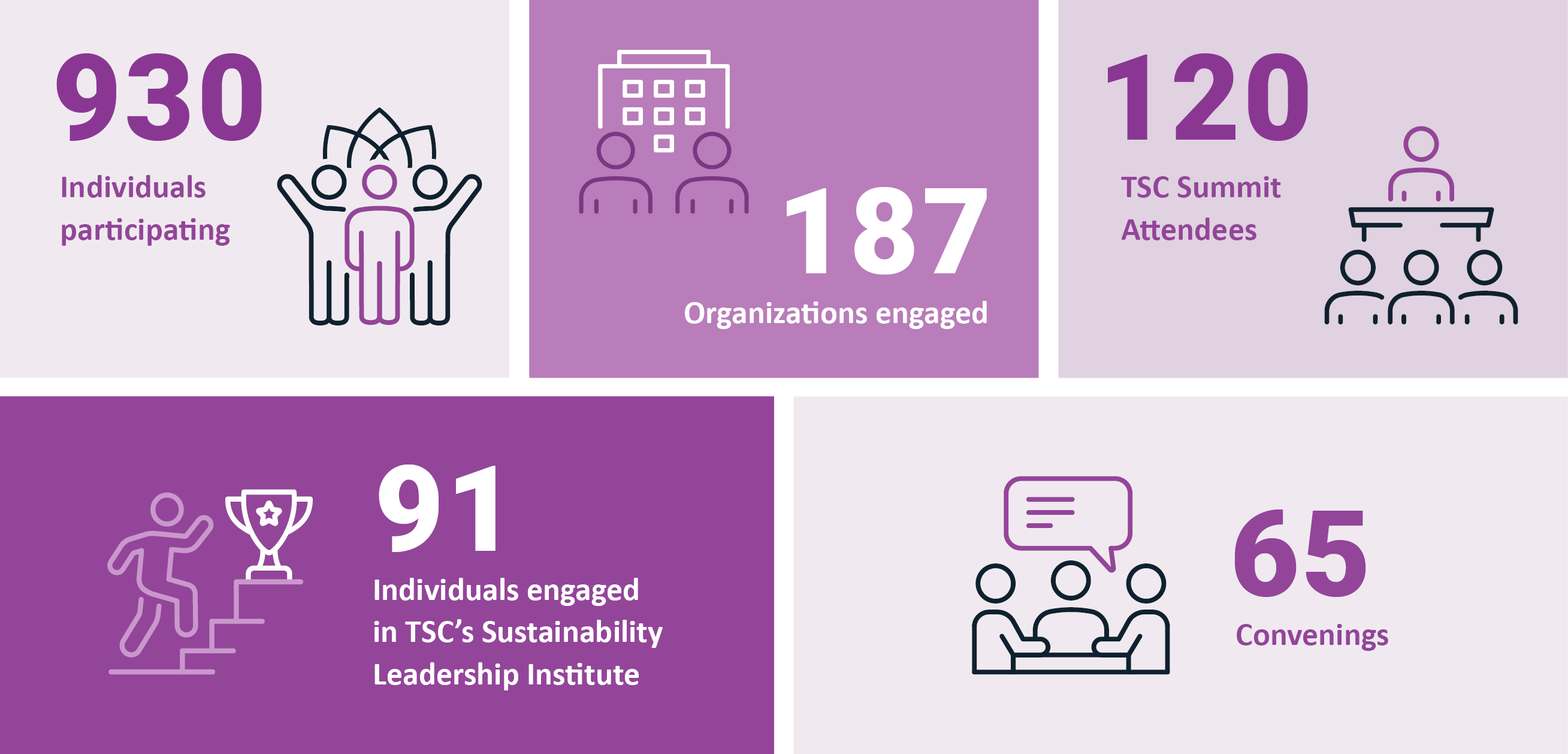

THANK YOU, TSC MEMBERS
Dear TSC Members,
As our team reflects on the past year we are immensely grateful to our dedicated community of members, whose support and loyalty are the backbone of our organization. Their contributions make up more than half of our operating budget, providing us with the resources and capacity to strive for our mission effectively.
In a landscape filled with competing priorities, we are honored to have our members’ trust and partnership. Their engagement goes far beyond financial support; they bring our work to life with their expertise, passion, and dedication.
As a science-based organization, we deeply value evidence and data. However, it is the application and implementation of this knowledge that truly propels us forward. Through the collaborative efforts of our members, we are able to turn ideas into action, creating tangible impact in sustainable practices for consumer goods supply chains.
Our community is the heart of TSC, and we are privileged to work alongside such remarkable individuals who embody our mission. Together, we are creating real change and moving towards a more sustainable future.
Thank you to every member for your ongoing commitment and partnership.
Here’s to continued success of driving positive change together.

Christy Slay
Ceo
For more information about becoming a TSC member please visit our Membership page.
TSC MEMBERSHIP
FY 2024 Financial Summary
fy 24 revenue summary
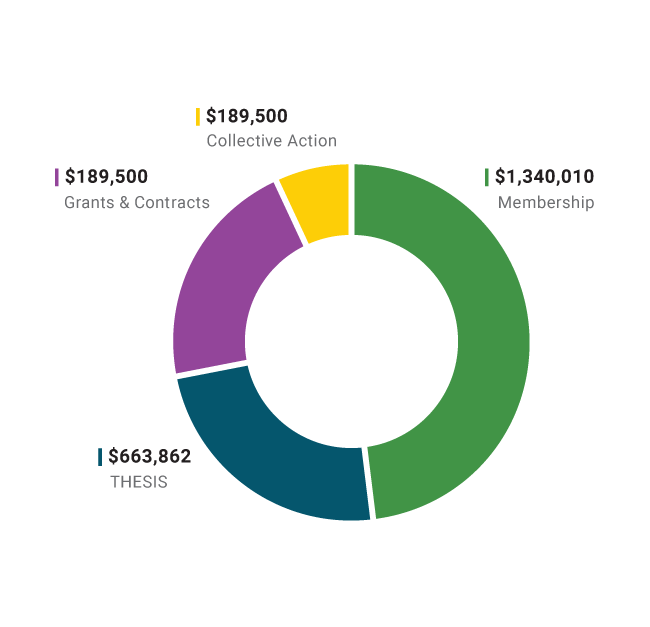
fy 24 Expense summary




